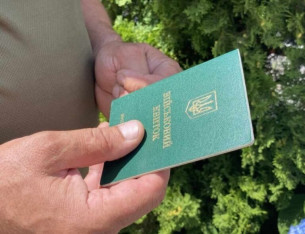Who is eligible for permanent care?
Permanent care is provided to individuals who, due to their physical condition, age, or illness, are unable to care for themselves independently. Such individuals require daily assistance from another person to help with eating, hygiene, mobility, doctor visits, etc. The law clearly defines the categories of citizens who are eligible for permanent care.
These include:
- elderly people (mainly those aged 65 and over);
- people with disabilities of group I or II;
- seriously ill people (based on the conclusion of the LCC or MSEC);
- children with disabilities;
- persons over 80 years of age — automatically recognized as requiring permanent care.
Who is eligible to provide long-term care?
Not everyone can be a caregiver. The law establishes requirements for persons providing long-term care. The main condition is the physical and mental ability to help another person on a permanent basis. Family or domestic ties are also taken into account.
The following persons have the right to provide care:
- family members or relatives of the first to third degree of kinship;
- spouses;
- other persons with the consent of the recipient of assistance;
- neighbors or cohabitants (in some cases — by separate decision of social protection authorities).
What documents are required to register for care?
To start the process of registering for permanent care, you need to collect the relevant documents. They are needed to confirm your identity, establish the need for care, and verify the possibility of providing compensation or benefits.
List of main documents:
- Passport and TIN of both parties.
- Application from the caregiver.
- Application or written consent of the person in need of assistance.
- Medical opinion on the need for care (LCC or MSEC).
- Certificate of residence.
- Documents confirming family ties.
- Income declaration (if compensation is being applied for).
- Certificate of the caregiver's health.
How does the process of applying for permanent care work?
The process of applying for permanent care consists of several stages. It is important to follow the correct sequence of actions, as mistakes can lead to delays or rejection. The process includes both medical and administrative components.
Step-by-step procedure:
- Obtaining a medical opinion (LKK, MSEC).
- Preparation and submission of a complete set of documents to the Administrative Services Center or social protection authority.
- Verification of living conditions by social services.
- Drawing up an act establishing the fact of permanent care.
- Decision by social services.
- Obtaining the act ➝ possibility to submit documents for deferral or compensation.
What compensation is provided and what benefits does the caregiver receive?
A caregiver who officially provides permanent care is entitled to social guarantees. The most common is compensation, which is paid monthly, but there are also additional benefits related to medical care and the right to a pension.
Payments and social guarantees:
- compensation depending on the category of the person being cared for;
- the right to benefits when paying for services;
- the possibility of counting care towards pensionable service;
- the right to receive care products free of charge (if necessary).
Refusal to register: what are the reasons?
Registration is not always successful the first time. Social services may refuse to issue a certificate if they find violations, inconsistencies in documents, or lack of grounds for care. It is important to know the reasons so that they can be eliminated in a timely manner.
The most common reasons for refusal are:
- incorrectly completed documents or missing documents;
- lack of a conclusion on the need for care;
- unsuitability of the caregiver (age, disability, illness);
- lack of actual care;
- lack of family or domestic ties.
Permanent care as a basis for obtaining a deferral
During martial law, permanent care for certain categories of persons entitles men of draft age to a legal deferral from mobilization. This is one of the most common grounds often used by Ukrainians.
The grounds for deferral are:
- the existence of a care certificate;
- a documented need for assistance;
- family ties or cohabitation.
How to use permanent care to travel abroad?
According to current legislation, registering for permanent care allows you to leave Ukraine together with the person who needs care. This may be necessary for treatment, rehabilitation, or residence abroad.
To do this, you must have:
- a document confirming the fact of care;
- medical documents of the person who needs assistance;
- documents confirming kinship;
- an explanation of the purpose of the trip.
- How and where to apply?
Permanent care is arranged through government agencies or with the help of a lawyer. Depending on the situation, documents are submitted either in person or through a representative.
The most common options for applying are:
- Administrative Services Center (ASC);
- Social Protection Department;
- Family doctor — for referral to the Medical and Social Examination Commission (MSEC) or Medical and Social Expert Commission (MSEC);
- Lawyer or attorney — to accompany the process.
Is it possible to arrange care for a person who is not a relative?
Yes, Ukrainian law allows for the arrangement of care for persons who are not related to the caregiver. The main requirement is the actual provision of care and the voluntary consent of both parties.
What is required for this:
- consent of the recipient of assistance;
- certificate of cohabitation;
- confirmation of the fact of care;
- positive conclusion of social services.
- How to arrange care for an elderly relative aged 80+?
Persons who have reached the age of 80 are automatically considered to be in need of constant care. This greatly simplifies the registration procedure and allows you to obtain a certificate without a medical opinion.
To do this, you need to:
- confirm your age with a passport or other document;
- submit an application to the social protection authority;
- undergo a check of your living conditions;
- obtain a care certificate.
Can I arrange permanent care for my parents?
Caring for a mother or father is one of the most common forms of assistance. It not only provides care for loved ones, but also allows you to obtain social guarantees and protection.
Registration is possible under the following conditions:
- joint or separate residence;
- documentary evidence of the need for assistance;
- consent of both parties;
- submission of a complete set of documents.
Why should you consult a lawyer to arrange care?
Although the registration procedure seems simple, in practice it is often accompanied by bureaucratic difficulties. A lawyer will help you avoid mistakes and speed up the process of obtaining the certificate.
Legal assistance includes:
- verification of documents;
- preparation of applications;
- support at all stages of registration;
- appealing against refusals by social services;
- obtaining a certificate for deferral or travel abroad.
Lawyer assistance in registering for permanent care
Registering for permanent care is not just a formality. It is an important social mechanism that allows you to provide support to those who really need it, as well as protect the rights of the caregiver — to obtain a deferral from mobilization, compensation, benefits, or the opportunity to cross the border.
The procedure involves many nuances — from collecting documents to passing medical commissions, interacting with social protection authorities, and correctly filling out applications. The slightest mistake can lead to rejection or delay.
To avoid unnecessary risks, we recommend seeking professional legal assistance. Our company's lawyers will:
- analyze your situation;
- collect and prepare the necessary documents;
- help you correctly formalize your departure;
- accompany you at all stages;
- if necessary, appeal an illegal refusal in court.

































